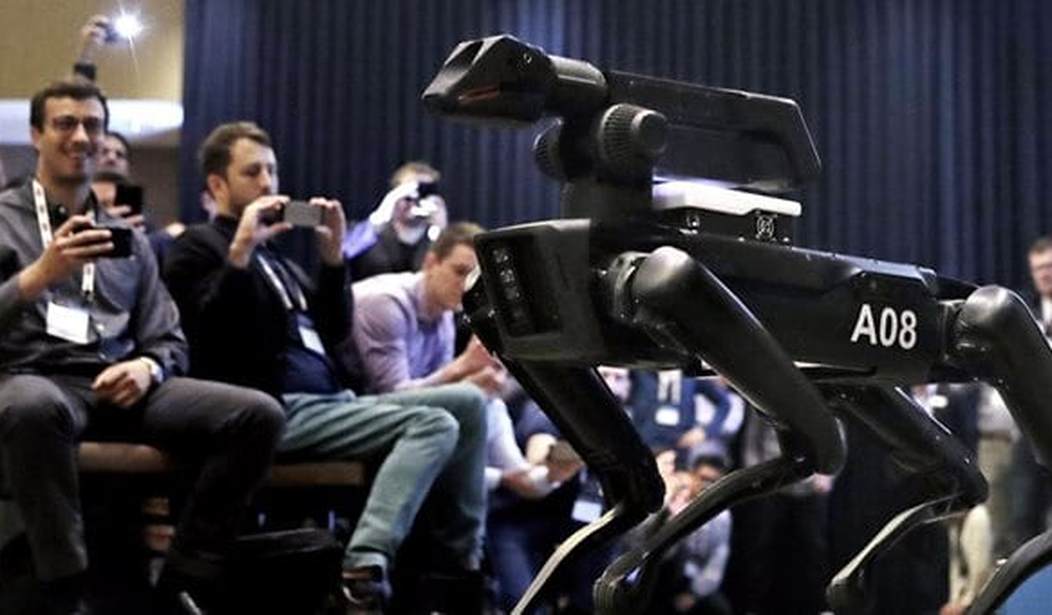Loyal readers know that I'm very big on writing about developing technologies and how they may impact the future. The trouble is that many of these technologies are somewhat frightening to look at from a distance and for good reason. Many of them will alter the social landscape and change humanity forever.
On Monday, I reported on what is likely the closest future technology to be realized to the point of mass adoption by billions and that's AR/VR technology and the implementation of what is currently being referred to as "The Oasis," a virtual world where people live, work, learn, and more, called such after the virtual world of the book "Ready Player One." While this hasn't been fully realized yet, many companies are attempting to create The Oasis, especially Meta with its "Metaverse."
Why? Because whoever creates The Oasis becomes the most powerful company in the world. It will become a globally used virtual world where even corporations live and die based on their existence in it.
Even companies that aren't trying to create a globally integrated virtual world are, at the very least, creating their own AR/VR devices. Apple recently released their "Vision Pro" which actually sports some impressive capabilities that may not completely capture the public eye now, but will after more development and improvements are made to the tech.
(READ: Apple's 'Vision Pro' Is the Infancy of Technology That Society Will Soon Revolve Around)
The VR/AR adoption but the general populace might be the closest at hand and its normalization is right around the corner (give or take five years) but it's hardly going to be unaccompanied by other technologies that come right out of a sci-fi book or movie.
For instance, Elon Musk's "Neuralink," which effectively allows people to become one with their technology via a chip in their brain, is now in human trials. In a couple of generations, something akin to a chip that interacts with your brain might not be all that strange.
Then there's AI, a technology that is being developed very rapidly to the point where interacting with it may not only seem like you're interacting with a person, but we will integrate it into almost every aspect of our society. It will control everything from how our traffic lights work to the creation of movies. It will likely also play a role in educating our children. It's already begun moving into human relationships.
That's not even getting into the robots being worked on by various companies, including Tesla.
(READ: My Weird Thoughts on How Humanity and Technology Will Grow Together)
The thing is, when I write about these things or see conversations about it happening online, it's oftentimes greeted with the same reactions of rejection and denial. In some of the previous writings about it, you can see that rejection and denial in the comments of the articles.
I addressed this attitude in my recent stream on "Brand Risk" where some of my viewers also expressed a total rejection of this technology.
Again, I can understand the sentiment, but I'll write here what I said there...
It IS happening.
It might not happen to you. You very well might keep to your word and never adopt any of this technology. For older generations, this vow might actually be kept purely because they won't be around long enough to see this tech develop further and be societally integrated. However, for younger generations, the adoption of some of these technologies is nothing short of inevitable.
It may not look a lot like it does now. For instance, Neuralink may go from being a chip implanted in the brain to a small chip that attaches to the skin behind the ear and sends signals to the brain. It can be placed and removed at will. The VR/AR tech may develop to the point where it no longer looks like a clunky visor and appears more like common spectacles or sunglasses.
Companies will see to it that a lot of this technology requires some of these additional technologies to function correctly in order to sell more of what they invested billions in developing. As it grows, investors will invest billions of dollars into making sure it improves and makes more.
All of this already happening, it just hasn't taken on the full view of a tidal wave yet as the technology is just leaving its infancy stage and learning to crawl.
You can reject it all you want. You can say it'll never happen.
But it's happening. These corporations and technologically-minded start-ups are seeing to it.
The question isn't whether or not it's going to happen, it's how. It's one we have to ask ourselves, if not for the sake of ourselves but for the sake of our children, grandchildren, and future generations down the line. What limitations will we put on how these corporations treat the people who adopt this tech? What will we and won't we accept in terms of intrusion and data gathering?
These are things we can start figuring out and laying boundaries for now because if we don't impose them on these corporations now, they'll work to get away with whatever they can until they're limited after the fact.
Yes, there are a million and one reasons a lot of this technology can be used, abused, and go wrong. That's a given, but this tech is coming. It might look slightly different down the line, but it's happening. How it is implemented is up to us.












